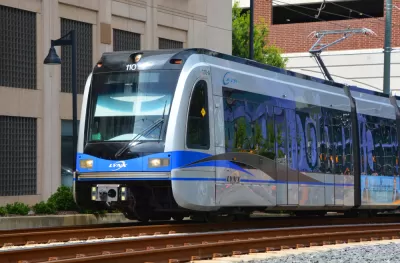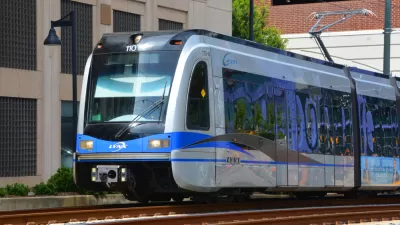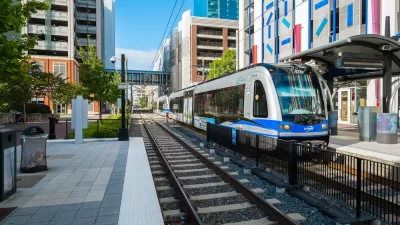The Charlotte Area Transit System must fully staff its Rail Operating Control Center or else. It’s only the latest challenge for the city’s troubled light rail transit system.

The North Carolina Department of Transportation (NCDOT) recently sent a letter informing the Charlotte Area Transit System (CATS) that it must bring its Rail Operating Control Center (ROCC) to full staffing or else it must cease operations, according to an article by Genna Contino.
NCDOT recently performed a surprise inspection, finding the ROCC operated by one staff member. “It’s standard for at least two controllers to work at the same time to run both Charlotte’s Gold Line and Blue Line trains efficiently, the NCDOT inspection found,” writes Contino. “It’s preferable for a rail controller chief to also be working with them, interim CATS CEO Brent Cagle said.”
Cagle is on the record saying that the ROCC will be fully staffed within three to six months. A mandatory overtime schedule will maintain staffing and service in the meantime.
The staffing shortage at the ROCC was precipitated by the firing of the light rail controller Terry Creech on duty at the time of the Blue Line derailment in May 2022, according to an earlier paywalled article published by the Charlotte Observer.
The derailment is creating all sorts of trouble for CATS, however. A recent report called for the CATS fleet of light rail trains to be repaired with urgency. A March article by Greg Lacour called the situation at CATS a “train wreck.”
The Charlotte experience is another example of an ongoing crisis with the service and maintenance of public transit in the United States, as declining revenues and stagnant ridership coincide with operator shortages and perceptions of increased crime on transit systems all over the country.

Planetizen Federal Action Tracker
A weekly monitor of how Trump’s orders and actions are impacting planners and planning in America.

Maui's Vacation Rental Debate Turns Ugly
Verbal attacks, misinformation campaigns and fistfights plague a high-stakes debate to convert thousands of vacation rentals into long-term housing.

San Francisco Suspends Traffic Calming Amidst Record Deaths
Citing “a challenging fiscal landscape,” the city will cease the program on the heels of 42 traffic deaths, including 24 pedestrians.

Amtrak Rolls Out New Orleans to Alabama “Mardi Gras” Train
The new service will operate morning and evening departures between Mobile and New Orleans.

The Subversive Car-Free Guide to Trump's Great American Road Trip
Car-free ways to access Chicagoland’s best tourist attractions.

San Antonio and Austin are Fusing Into one Massive Megaregion
The region spanning the two central Texas cities is growing fast, posing challenges for local infrastructure and water supplies.
Urban Design for Planners 1: Software Tools
This six-course series explores essential urban design concepts using open source software and equips planners with the tools they need to participate fully in the urban design process.
Planning for Universal Design
Learn the tools for implementing Universal Design in planning regulations.
Heyer Gruel & Associates PA
JM Goldson LLC
Custer County Colorado
City of Camden Redevelopment Agency
City of Astoria
Transportation Research & Education Center (TREC) at Portland State University
Jefferson Parish Government
Camden Redevelopment Agency
City of Claremont




























